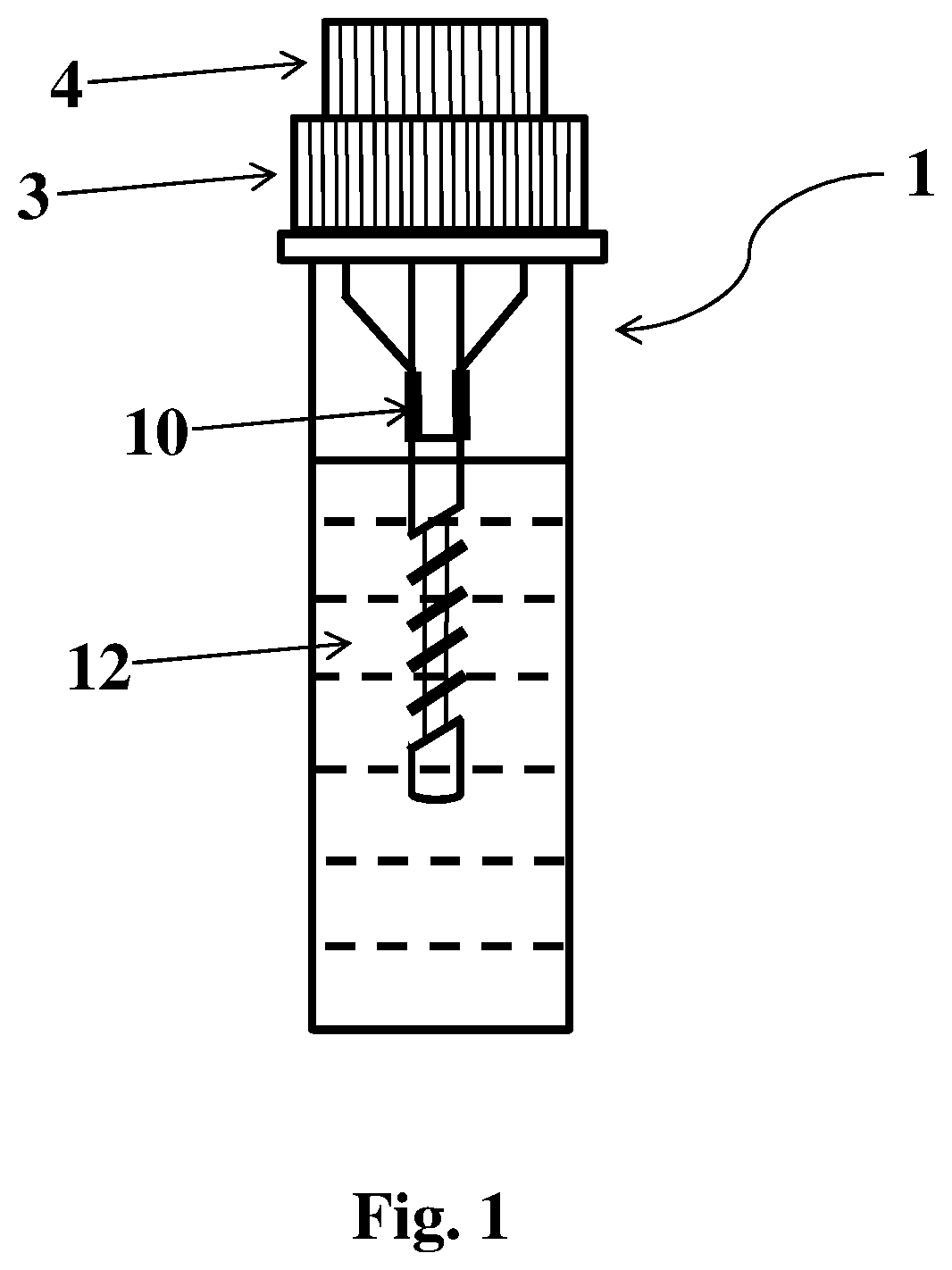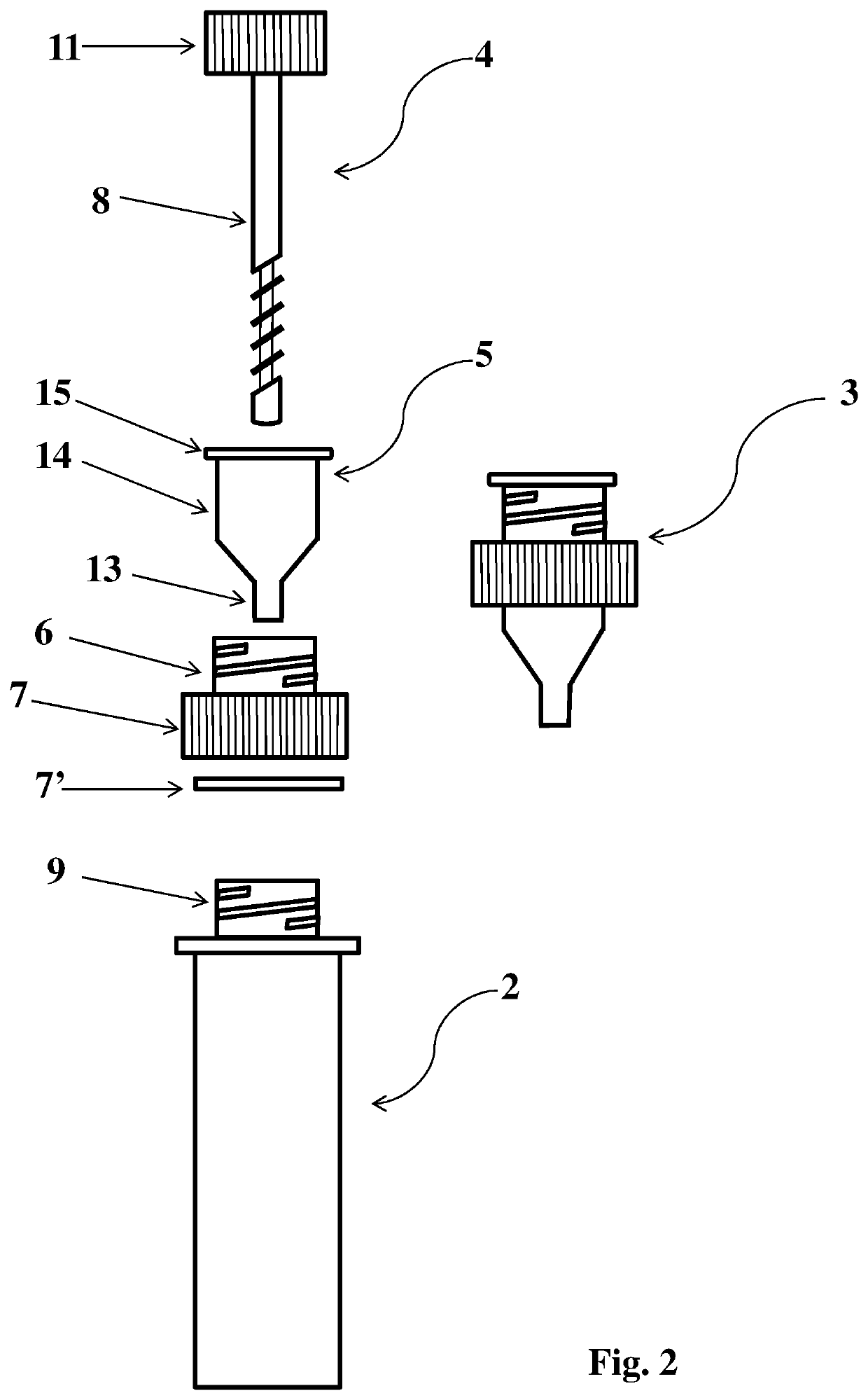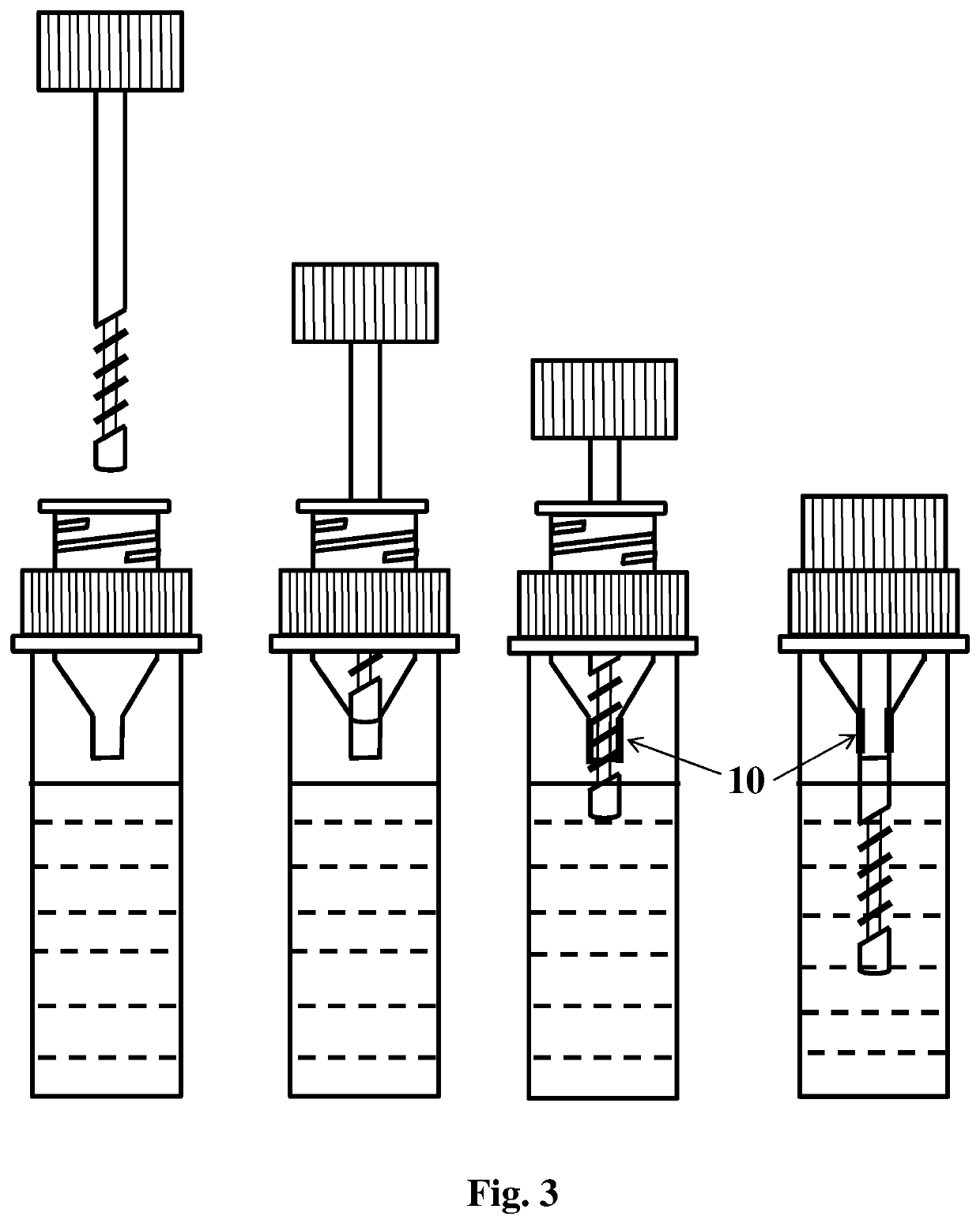Device for fecal sample collection and extraction
a fecal sample and extraction device technology, applied in the field of fecal sample collection and extraction devices, can solve the problems of time-consuming weighing methods, unpleasant use, and label-intensive operation of large amounts of samples, and none of these methods can achieve the sampling accuracy required, and achieve convenient fecal sample collection, quantitative accuracy, and easy collection of fecal samples.
- Summary
- Abstract
- Description
- Claims
- Application Information
AI Technical Summary
Benefits of technology
Problems solved by technology
Method used
Image
Examples
example 1
n of the Quantitative Consistency of Sample Collection Using the Invented Device
[0042]To evaluate the quantitative consistency of the fecal sample collection device of the invention, the amount of sample collected in the grooves of the sampling wand of the device was individually measured using a analytical scale. The peanut paste was used as a replacement of fecal samples. The sampling wand was first cut off from the top cap. The cap-less sampling wand was placed on the analytical scale and used to tare the scale to zero. The sampling wand was dipped into multiple sites of the peanut paste to collect a substantial amount of sample, and was pushed to pass through the sealing funnel on the middle cap. The passing-through sampling wand was measured on the analytical scale and the net weight of the sample collected in the grooves was thus obtained.
[0043]The measured weight of the collected sample in the grooves was converted to the corresponding volume assuming the density of the peanu...
example 2
nt of Fecal Calprotecin Using the Invented Device and the Conventional Weighing Method
[0045]120 clinical fecal samples were collected and extracted using the conventional weighing method and the invented device. The amount of calprotectin in each sample was determined using an immunoassay specific for calprotectin measurement (Fecal Calprotectin ELISA Kit, Epitope Diagnostics, Inc. San Deigo, Calif.), which utilizes the two-site “sandwich” technique with two selected antibodies that bind to different epitopes of human calprotectin. Briefly, calprotectin protein standards, blank controls and patient sample extractions were added to wells of a microtiter plate coated with a calprotectin antibody. After the first incubation period, the plate was washed and horseradish peroxidase (HRP)-conjugated human calprotectin specific monoclonal antibody was added to each well. After the second incubation period, a “sandwich of solid-phase antibody-human calprotectin-HRP-conjugated monoclonal anti...
PUM
| Property | Measurement | Unit |
|---|---|---|
| length | aaaaa | aaaaa |
| length | aaaaa | aaaaa |
| volume | aaaaa | aaaaa |
Abstract
Description
Claims
Application Information
 Login to View More
Login to View More - R&D
- Intellectual Property
- Life Sciences
- Materials
- Tech Scout
- Unparalleled Data Quality
- Higher Quality Content
- 60% Fewer Hallucinations
Browse by: Latest US Patents, China's latest patents, Technical Efficacy Thesaurus, Application Domain, Technology Topic, Popular Technical Reports.
© 2025 PatSnap. All rights reserved.Legal|Privacy policy|Modern Slavery Act Transparency Statement|Sitemap|About US| Contact US: help@patsnap.com



